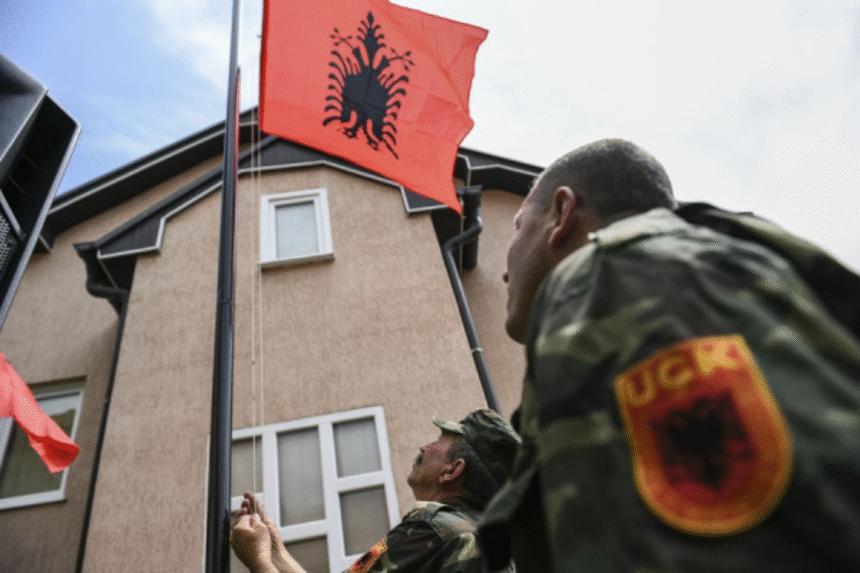“Today we live just to survive,” says Bahri Shala, a 56-year-old former soldier of the Kosovo Liberation Army (KLA) from Peja, who is a father of two. His only monthly income comes from a veteran’s pension, which he says is insufficient, as he is not allowed to work elsewhere.
Earlier this year, the Kosovo government increased pensions for all categories of war veterans, but the amount still falls below the country’s minimum wage. With this increase, war veterans receive a monthly pension of 204 euros.
Shala, who served in the 133rd Brigade “Adrian Krasniqi,” describes the hardships of post-war life:
“Today it’s almost just surviving—living day to day. Sometimes we rely on help from others because with 200 euros you can’t survive. Our right to work has been restricted, and certain benefits are completely denied. The state should ensure social support, like Croatia, where citizens receive monthly assistance that covers basic needs. A child doesn’t care if you have money or not—they just ask for food,” he says.
Shala joined the KLA with the ideal of freedom during the genocide committed by the Serbian state in Kosovo. After liberation, he struggled to secure housing and lived without a roof over his head until four years ago.
“Since 2000, I lived in a friend’s house, and I am grateful to those who let me stay without rent. Otherwise, I wouldn’t have managed. I thank them sincerely for their help,” he adds.
Kosovo’s law for war veterans from 1998-1999 states that pensions cannot be lower than the country’s minimum wage. Shala calls for a review of the law to allow veterans to work:
“My message to the state is to establish a minimum wage for veterans and allow those capable to work, just like other people with disabilities who are allowed to have employment,” he says.
Aziz Hyseni from Podujeva, who lived in Croatia during the conflict, joined the KLA after the heroic fall of the Jashari family in Prekaz. Initially he armed himself in Tropojë, Albania, then joined the operational zones in Morinë, Junik, and Llap.
Hyseni criticizes the lack of institutional support for veterans over almost three decades:
“I have health problems—heart attacks, strokes, joint issues. Most veterans face similar struggles. Two hours on the front line are psychologically harder than years of protests. War means either killing or being killed,” he says.
Kosovo’s 2014 law grants veterans and close family members free healthcare, but the law has not been fully implemented, according to Gazmend Syla, Vice President of the KLA Veterans Organization.
Syla notes that approximately 60 veterans have committed suicide since the war, highlighting the ongoing need for support. Hyseni adds:
“Even today, many veterans need treatment. The state may have the means now, but there seems to be no interest,” he says.
Before joining the KLA, Hyseni volunteered in the Croatian army in 1991, participating in nearly a year of combat, including the liberation of Dubrovnik. He praises Croatia’s treatment of veterans:
“In Croatia, veterans are treated with respect and dignity. They have healthcare, employment opportunities, and can access land or credit. Disabled veterans are provided with full support, including housing and vehicles every five years if needed,” Hyseni explains.
Tom Kaçinari, head of Croatia’s volunteer veteran associations, describes the benefits provided by the Croatian Ministry of Veterans. Veterans receive pension multipliers based on service, priority in education for children, healthcare, rehabilitation centers, and employment support.
In Croatia, there are 518,000 registered veterans, including 3,200 Albanians—2,800 volunteers, 87 martyrs, 37 missing, and 250 disabled. In Kosovo, according to the Kosovo Statistics Agency, 37,000 of 47,000 registered veterans receive pensions.







